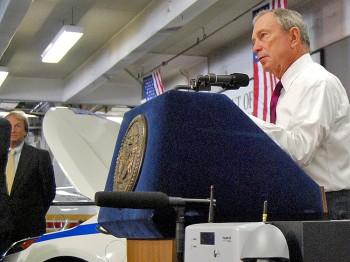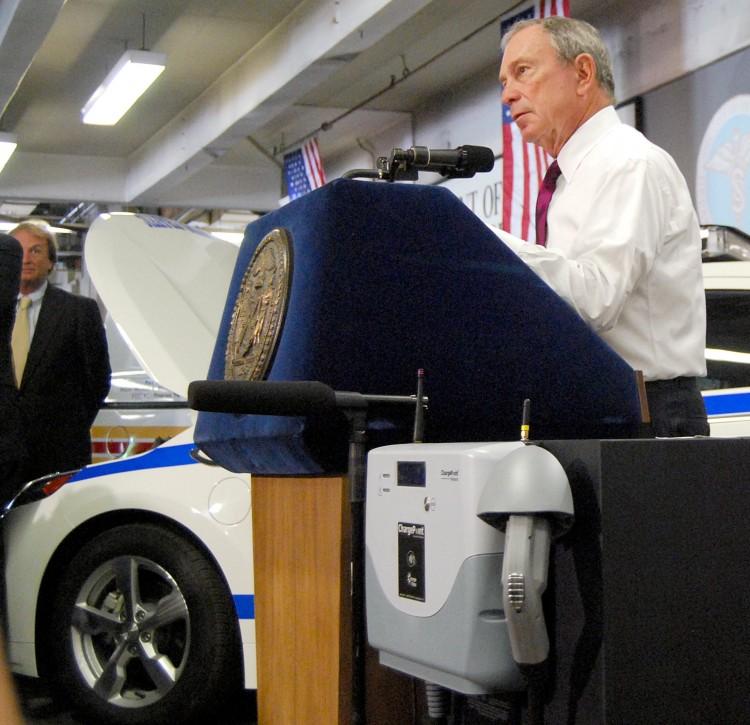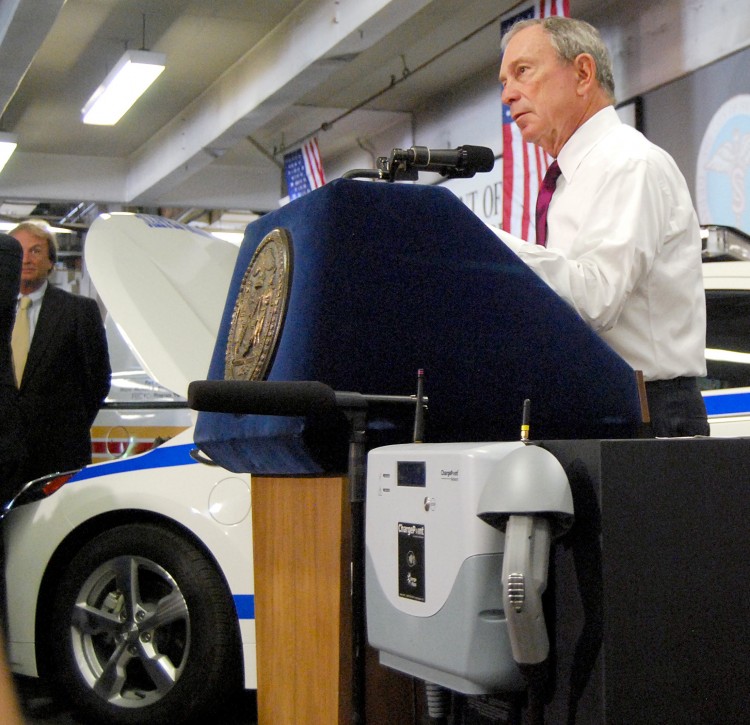New York City Adds 70 New Electric Vehicles to Municipal Fleet
Mayor Michael Bloomberg announced the addition of 70 new electric vehicles to the city’s fleet on Tuesday, at the Department of Sanitation Central Repair Shop in Queens.

CLEANER ENERGY: Seventy new electric vehicles have been added to the city�¢ï¿½ï¿½s municipal fleet. Mayor Bloomberg stands by a model electric charging station in front of a Chevrolet Volt to be used by the NYPD, at the Department of Sanitation Central Repair Shop in Queens on Tuesday. These will be the first electric cars used by the NYPD. Catherine Yang/The Epoch Times
|Updated:






